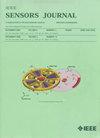基于并行通道-时间注意的时间卷积网络在变负载条件下船舶发动机性能预测中的应用
IF 4.3
2区 综合性期刊
Q1 ENGINEERING, ELECTRICAL & ELECTRONIC
引用次数: 0
摘要
船舶的安全运行和智能优化在很大程度上依赖于船用发动机性能的预测性维护。然而,由于船舶发动机的各种特性取决于航行状态和环境条件,现有的发动机性能预测方法面临局限性。为了解决这个问题,提出了一种新的深度学习框架,即基于并行通道-时间注意力的时间卷积网络(PCTA-TCN),用于预测船舶发动机在不同负载范围内的性能。PCTA-TCN框架在两个独立的分支中引入通道注意和时间注意机制,自适应地调整对测量数据中重要特征和时间依赖性的关注。并行时间卷积网络(TCN)主干用于从不同序列中提取高级特征表示。最后,该模型通过在多个层次上对提取的特征进行非线性映射来生成预测。利用传感器采集数据进行的实验验证表明,PCTA-TCN在所有数据集上的${R}^{{2}}$值始终超过0.956。与基线TCN模型相比,该方法在4种不同负荷条件下的预测准确率分别提高了13.95%、49.81%、15.64%和19.73%。此外,PCTA-TCN优于其他最先进的方法,特别是在复杂和可变的操作条件下。本文章由计算机程序翻译,如有差异,请以英文原文为准。
Parallel Channel-Temporal Attention-Based Temporal Convolutional Network for Marine Engine Performance Prediction Under Varying Load Conditions
The safe operation and intelligent optimization of ships heavily rely on the predictive maintenance of marine engine performance. However, existing methods for predicting engine performance face limitations due to the various characteristics of ship engines, which depend on the sailing state and environmental conditions. To address this, a novel deep learning framework, the parallel channel-temporal attention-based temporal convolutional network (PCTA-TCN), is proposed to predict marine engine performance across varying load ranges. The PCTA-TCN framework introduces channel attention and temporal attention mechanisms in two independent branches, adaptively adjusting the focus on important features and temporal dependencies in the measured data. Parallel temporal convolutional network (TCN) backbones are used to extract high-level feature representations from different sequences. Finally, the model generates predictions by performing a nonlinear mapping on the extracted features at multiple levels. Experimental validation using sensor-acquired data demonstrates that PCTA-TCN consistently achieves an ${R}^{{2}}$ value exceeding 0.956 across all datasets. Compared to the baseline TCN model, the proposed method improves the prediction accuracy by 13.95%, 49.81%, 15.64%, and 19.73% under four different load conditions. Furthermore, PCTA-TCN outperforms other state-of-the-art methods, particularly under complex and variable operating conditions.
求助全文
通过发布文献求助,成功后即可免费获取论文全文。
去求助
来源期刊

IEEE Sensors Journal
工程技术-工程:电子与电气
CiteScore
7.70
自引率
14.00%
发文量
2058
审稿时长
5.2 months
期刊介绍:
The fields of interest of the IEEE Sensors Journal are the theory, design , fabrication, manufacturing and applications of devices for sensing and transducing physical, chemical and biological phenomena, with emphasis on the electronics and physics aspect of sensors and integrated sensors-actuators. IEEE Sensors Journal deals with the following:
-Sensor Phenomenology, Modelling, and Evaluation
-Sensor Materials, Processing, and Fabrication
-Chemical and Gas Sensors
-Microfluidics and Biosensors
-Optical Sensors
-Physical Sensors: Temperature, Mechanical, Magnetic, and others
-Acoustic and Ultrasonic Sensors
-Sensor Packaging
-Sensor Networks
-Sensor Applications
-Sensor Systems: Signals, Processing, and Interfaces
-Actuators and Sensor Power Systems
-Sensor Signal Processing for high precision and stability (amplification, filtering, linearization, modulation/demodulation) and under harsh conditions (EMC, radiation, humidity, temperature); energy consumption/harvesting
-Sensor Data Processing (soft computing with sensor data, e.g., pattern recognition, machine learning, evolutionary computation; sensor data fusion, processing of wave e.g., electromagnetic and acoustic; and non-wave, e.g., chemical, gravity, particle, thermal, radiative and non-radiative sensor data, detection, estimation and classification based on sensor data)
-Sensors in Industrial Practice
 求助内容:
求助内容: 应助结果提醒方式:
应助结果提醒方式:


